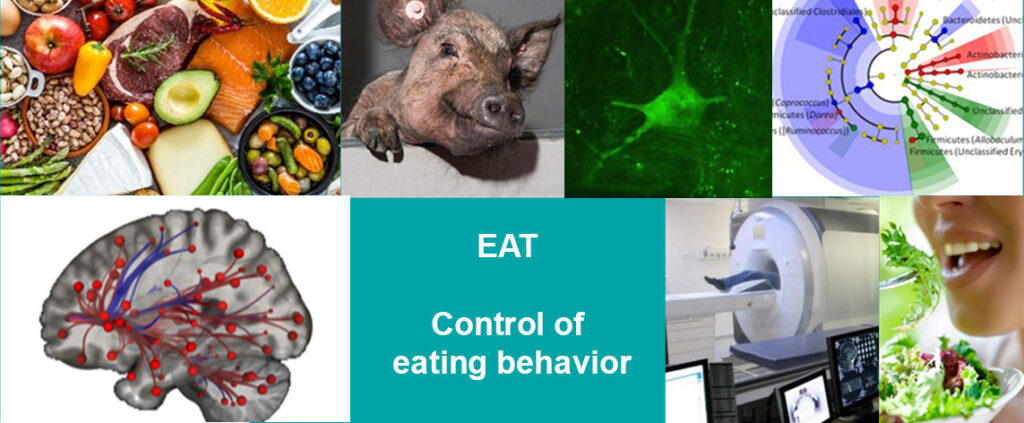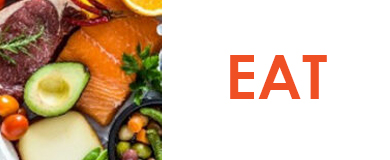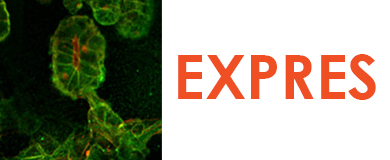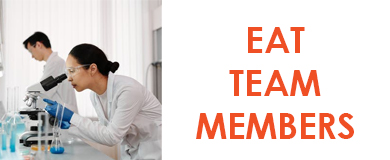Control of eating behavior

Team leaders :
Gaëlle Boudry & David Val-Laillet
Overweight and obesity are often the result of altered eating behavior, in one or several of its dimensions, which contributes to an excess of energy intake over energy expenditure. Food intake regulation and control include dynamic processes triggered by external and internal stimuli. However, regulation of food intake is steadily challenged and sometimes overridden by the omnipresence of food and food-related cues, especially palatable and high-energy-dense food. This can lead to food intake in the absence of hunger or to continuation of food intake beyond satiation. In some cases, frequent exposure to palatable foods can also lead to hyperphagia phenomena and food cravings (i.e. an intense desire to consume a specific food, which is different from normal hunger) for these foods, or even food addiction. Negative emotions or chronic psychosocial stress management problems can also favor the onset of food or alcohol abuse as compensatory mechanisms. Thus, consumption of high-energy-dense and unbalanced diets leads to a continuum of abnormal eating behaviors, ranging from altered regulation of food intake to non-homeostatic food intake and even food addiction, all of them possibly contributing to excess weight gain, obesity and related comorbidities.
The objectives of the ‘Control of eating behaviors’ team (EAT) are in animal models and humans 1- to unravel some of the relationships between Western-type diet consumption and the development of eating behavior abnormalities or pathologies, and 2- to validate innovative interventions aimed at preventing or correcting altered eating behaviors.
We defined two thematic axis in which these two specific objectives will be achieved.
Theme 1: Modulation of food intake regulation by the microbiota-gut-brain-axis
The influence of gut microbiota on eating behavior has been postulated by several groups. Likewise, we evidenced a role of the gut microbiota in the alteration of food intake regulation or the occurrence of non-homeostatic food intake (‘snacking-type’ eating behavior). Many data, including ours, demonstrated that Western-type diet consumption has a strong impact on intestinal microbiota composition and metabolites. Diet-induced dysbiosis could thus trigger disturbances of specific gut functions (endocrine and barrier function) involved in the regulation of food intake. Moreover, gut microbiota establishes early in life and is influenced by environmental factors, including diet. We observed immediate and long-term consequences of perinatal nutrition on gut microbiota composition and metabolome, associated with modifications in gut functions. Parallel to gut colonization, brain structures, including those involved in the regulation of food intake, mature post-natally and could be influenced by the colonizing microbiota.
In this context, our specific aims are: a) to disentangle the impact of diet-induced gut dysbiosis on specific intestinal signals involved in the regulation of food intake, and b) to document the impact of early gut colonization on the establishment of food intake regulation mechanisms and the role of perinatal nutrition on its modulation.
Theme 2: Modulation of food pleasure and motivation via cortico-striatal interactions
Complex neurocognitive processes occur to interpret and attribute metabolic/hedonic values to food signals, associate them with the internal and emotional status, and eventually take decisions to select and consume food items or beverages. The prefrontal and orbitofrontal cortexes play fundamental roles in hedonic valuation, decision-making, and goal-oriented behavior. They are tightly interconnected with the striatum so that food hedonic and motivational dimensions can influence food choices and decisions. The dynamic vulnerability model of obesity suggests that chronic consumption of palatable foods is at the origin of a shift in the hedonic and cognitive neurobehavioral processes controlling food intake depending on altered interactions between the frontostriatal and corticolimbic circuits.
In this context, our specific aims are therefore based on minipig model and human clinical studies/trials: a) to understand how these neurocognitive processes are modulated by the nutritional environment in interaction with emotions, stress and psychological/addictive profiles and which interactions exist between the different neural networks involved in the control of food intake, and b) to test and validate innovative strategies targeting the cortico-striatal loop as well as their behavioral and cognitive functions to restore normal food intake control.

Recent publications:
- Arnaud AP, Cousin I, Schmitt F, Petit T, Parmentier B, Levard G, Podevin G, Guinot A, DeNapoli S, Hervieux E, Flaum V, De Vries P, Randuineau G, David-Le Gall S, Buffet-Bataillon S, Boudry G. (2022) Different Fecal Microbiota in Hirschsprung’s Patients With and Without Associated Enterocolitis. Front Microbiol., 13:904758. doi: 10.3389/fmicb.2022.904758
- Ben Fradj S, Nédélec E, Salvi J, Fouesnard M, Huillet M, Pallot G, Cansell C, Sanchez C, Philippe C, Gigot V, Lemoine A, Trompier D, Henry T, Petrilli V, Py BF, Guillou H, Loiseau N, Ellero-Simatos S, Nahon JL, Rovère C, Grober J, Boudry G, Douard V, Benani A. (2022) Evidence for Constitutive Microbiota-Dependent Short-Term Control of Food Intake in Mice: Is There a Link with Inflammation, Oxidative Stress, Endotoxemia, and GLP-1? Antioxid Redox Signal.; 37(4-6):349-369. doi: 10.1089/ars.2021.0095
- Coquery N, Gautier Y, Serrand Y, Meurice P, Bannier E, Thibault R, Constant A, Moirand R, Val-Laillet D. (2022) Brain Responses to Food Choices and Decisions Depend on Individual Hedonic Profiles and Eating Habits in Healthy Young Women. Front Nutr., 9: 920170. doi: 10.3389/fnut.2022.920170
- Eliat PA (2022) Editorial for “Noninvasive Assessment of APAP-Induced Hepatotoxicity Using Multiple MR Parameters in an Experimental Rat Model”. J Magn Reson Imaging. doi:10.1002/jmri.28200
- Constant A, Sanz M, Moirand R. (2022) Predictors of Short-Term Alcohol Drinking in Patients with Alcohol Use Disorders during the Third Wave of the COVID-19 Pandemic: Prospective Study in Three Addiction Outpatient Centers in France. Int J Environ Res Public Health.19(4):1948. doi: 10.3390/ijerph19041948
- Godet A, Fortier A, Bannier E, Coquery N, Val-Laillet D. (2022) Interactions between emotions and eating behaviors: Main issues, neuroimaging contributions, and innovative preventive or corrective strategies. Rev Endocr Metab Disord., 23(4):807-831. doi: 10.1007/s11154-021-09700-x
- Guerbette T, Boudry G, Lan A. (2022) Mitochondrial function in intestinal epithelium homeostasis and modulation in diet-induced obesity. Mol Metab. 63:101546. doi: 10.1016/j.molmet.2022.101546
- Lacaze L, Rochdi S, Couvert A, Touboulic S, Guérin S, Randuineau G, Martin D, Romé V, Malbert CH, Derbré F, Val-Laillet D, Thibault R. (2022) The Yucatan minipig model: A new preclinical model of malnutrition induced by a low-calorie/low-protein diet. Clin Nutr. 41:2077-86. doi: 10.1016/j.clnu.2022.08.002
- Legros L, Bardou-Jacquet E, Turlin B, Michalak S, Hamonic S, Le Gruyer A, Aziz K, Lemoine C, Bouvard N, Chavagnat JJ, Silvain C, Kerjean J, Le Dréau G, Lacave-Oberti N, Oberti F, Le Lan C, Guyader D, Moirand R. (2022) Transient Elastography Accurately Screens for Compensated Advanced Chronic Liver Disease in Patients With Ongoing or Recent Alcohol Withdrawal. Clin Gastroenterol Hepatol. 20(7):1542-1552.e6. doi: 10.1016/j.cgh.2021.02.021
- Som M, Constant A, Zayani T, Pabic EL, Moirand R, Val-Laillet D, Thibault R. (2022) Food addiction among morbidly obese patients: prevalence and links with obesity complications. J Addict Dis. 40(1):103-110. doi: 10.1080/10550887.2021.1939630.
- Arnaud AP, Hascoet J, Berneau P, LeGouevec F, Georges J, Randuineau G, Formal M, Henno S, Boudry G (2021) A piglet model of iatrogenic rectosigmoid hypoganglionosis reveals the impact of the enteric nervous system on gut barrier function and microbiota postnatal development. J Pediatr Surg. 56(2):337-345. doi: 10.1016/j.jpedsurg.2020.06.018
- Bergeat D, Blat S, Guérin S, Le Huërou-Luron I, Thibault R, Val-Laillet D. (2021) A pilot study about the development and characterization of a Roux-en-Y gastric bypass model in obese Yucatan minipigs. Scient Rep. 11:20190. doi: 10.1038/s41598-021-98575-8
- Boudry G., Charton E., Le Huërou-Luron I., Ferret-Bernard S., Le Gall S., Even S., Blat S. (2021) The relationship between breast milk components and the infant gut microbiota. Front Nutr., 8: 629740, doi :10.3389/fnut.2021.629740
- Buffet-Bataillon S, Bellanger A, Boudry G, Gangneux JP, Yverneau M, Beuchée A, Blat S, Le Huërou-Luron I. (2021) New Insights Into Microbiota Modulation-Based Nutritional Interventions for Neurodevelopmental Outcomes in Preterm Infants. Front Microbiol. 12:676622. doi: 10.3389/fmicb.2021.676622.
- Lemaire M, Ménard O, Cahu A, Nogret I, Briard-Bion V, Cudennec B, Cuinet I, Le Ruyet P, Baudry C, Dupont D, Blat S, Deglaire A, Le Huërou-Luron I (2021) Addition of dairy lipids and probiotic Lactobacillus fermentum in infant formulas modulates proteolysis and lipolysis with moderate consequences on gut physiology and metabolism in Yucatan piglets. Front Nutr. 8: 615248, doi: 10.3389/fnut.2021.615248
- Koelfat KVK, Picot D, Chang X, Desille M, van Eijk HM, van Kuijk SMJ, Lenicek M, Layec S, Carsin M, Dussaulx L, Seynhaeve E, Trivin F, Lacaze L, Thibault R, Schaap FG, Olde Damink SWM (2021) Chyme reinfusion restores the regulatory bile salt-FGF19 axis in intestinal failure patients. Hepatology 74(5):2670-2683. doi: 10.1002/hep.32017
- Siekaniec G, Roux É, Lemane T, Guédon É, Nicolas J (2021) Identification of Isolated or Mixed Strains from Long Reads: A Challenge met on Streptococcus thermophilus Using a MinION Sequencer. Microb Genom. 7: 1-14. doi : 10.1099/mgen.0.000654
- Zhang, X. Val-Laillet, D (2021) Obesity animal models for acupuncture and related therapy researches. Evid Based Complement Alternat Med. 6663397. doi: 10.1155/2021/6663397.





